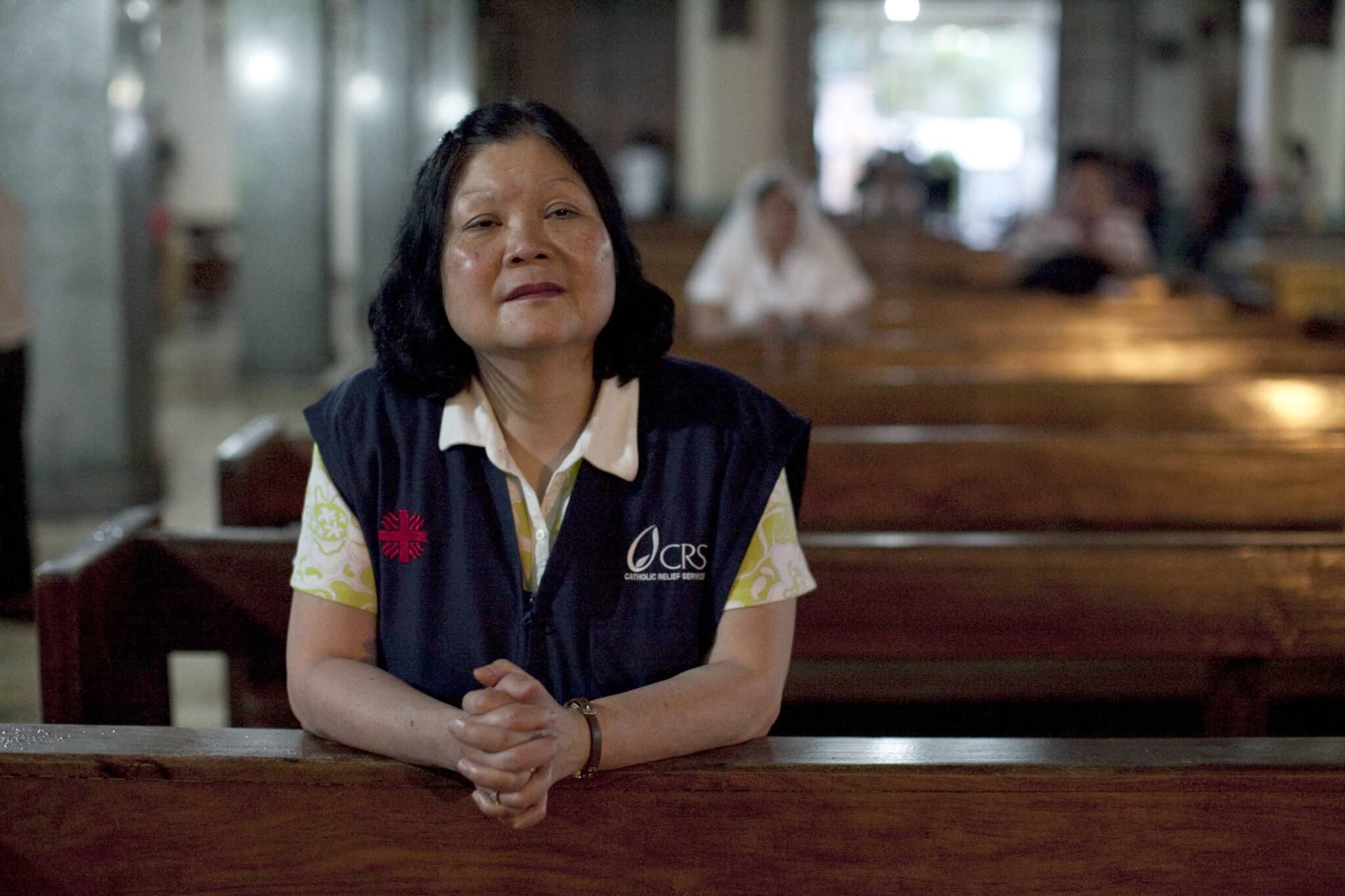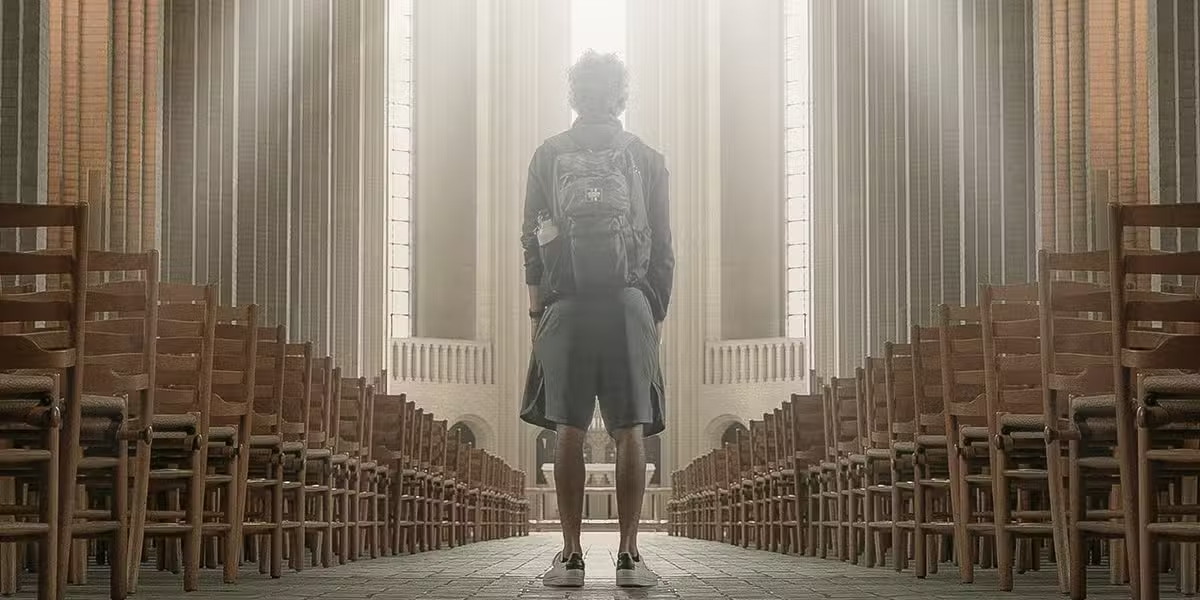It has been a fantastic journey, these past six decades in the life of Carolyn Woo. It is a tale as much Ian Fleming as Thomas Merton, two parts nose-to-the-grindstone for each part prayer of international intrigue, hard work, excellence in all attempted, and faith beyond understanding.
Her father was a purchased child, bought by a middle-class family from a poor one at a young age and educated in the West. Her livein nanny, a Buddhist, was procured at age nine to be a servant.
“It was an investment, ” Woo says of her father’s move from one set of parents to another. “But it was also charity because children [were] starving to death. ”
Woo’s parents were pursued her mother for betrothal, her father for conscription by the Japanese military during the Imperial Army’s World War II occupation of China.
Her father, Peter Woo, was a naval architect schooled in Germany and Scotland. A man-about-town, he enjoyed cards, especially bridge, and clubs, while making sure his brood made it to Mass every Sunday.
“My father was a baptized, non-practicing Catholic, ” says Woo. “Every Sunday he would drive us to church and wait outside for us to come out. ”
Perhaps because his own life had been so dramatic, or perhaps because he was just an old-fashioned patriarch, he wanted Carolyn and her three sisters to finish high school, settle down, and stay close to the family in Hong Kong. (Peter Woo’s sons were encouraged to pursue every opportunity that a good education in the world had to offer.)
From an early age, the fifth of his six children desired something more, much more. Very simply, says Woo, the only daughter to attend college: “I had other plans. ”
Those ideas have taken Woo far in 58 years from a little kid in Hong Kong who spoke no English to the top job at one of the world’s most influential humanitarian organizations.
Referencing Pope Benedict XVI’s 2009 encyclical, “Charity in Truth, ” Woo wrote: “Such potential [to better the lives of others] and responsibility exist, but that these can only be brought forth through the moral energies of leaders. ”
This is the philosophy on which she runs Catholic Relief Services (CRS), one of the largest charities in the United States, with reported revenue of $715 million last year and a strong, influential presence around the world. CRS currently assists more than 100 million people in some 91 countries.
Example of Joy
“Humans are smart because God made us to be smart, ” says Woo, who moved to Baltimore to run CRS in January 2012. “We have the will to take ownership for problems. ”
Founded by US bishops in New York in 1943 as a response to World War II, CRS has grown beyond the distribution of basic necessities in the wake of disasters both natural and man-made toward programs with an emphasis on health, education, agriculture, and economic development. CRS remains a program of the bishops’ conference today.
In the essential skill of farming, Woo has increased the emphasis on women, often the majority in groups with which CRS works. She notes that many farmers around the world are female and that literacy and their access to education are imperative to bumper crops.
Women have also been at the forefront of savings and lending programs established by CRS in poor nations a new twist on the early 20th-century immigrant savings and loans that helped build neighborhoods in many American cities.
As in everything she does, Woo notes the paramount influence of the Maryknoll Sisters, who spent 12 years preparing Woo to achieve anything she set her mind to. She keeps a display of Maryknoll schoolgirls in their various uniforms over the years (for Woo it was blue in winter and white in summer) and tells the story of the sisters credit where credit is due in every interview.
“My religious identity absolutely came from the Maryknoll Sisters, ” says Woo. “They were full of joy and very able a very tight fraternity of sisters. ” And they were American, which fascinated Woo and her classmates. Young Carolyn responded strongly to the sisters’ sense of adventure but not the call “well, maybe a little, ” she says of convent life.
“Their example was so much joy and so much excellence. I push people pretty hard I have a very high standard. ” She is not shy about telling people when they have fallen short of that bar, as many of Woo’s staff, about 300 people in Baltimore, will testify.
Like Woo’s family, the Maryknolls fled China for Hong Kong during the Communist Revolution and there set up schools establishing one academy, Woo says, with money saved by walking everywhere instead of taking public transportation. They were also the founders of hospitals and clinics and active in campaigns for social justice.
“Very few of the sisters spoke Chinese so we were taught in English from the second grade on, ” says Woo. “By the 10th grade, our debating team did well enough to challenge the private [British] schools, and we did well. A few times we beat them. ”
For those dozen, crucial years of childhood, she says, the Maryknoll “impact on me was unbelievable. They were the first ones to make God real to me. ” God the Father became real to Woo, she says, because he was real to the sisters. With a logic honed on the debate team, she reckoned that if the Creator weren’t real, giving up everything to serve others as the Maryknolls did, all while subjected to hardship, violence, and disease, would not make sense.
“I’m very strong-willed and analytical, ” says Woo. “Once I figure something out, you have to go through the logic to undo my thinking. ” If it doesn’t make sense, Carolyn Woo is not going to put the considerable influence of Catholic Relief Services at stake.
Equipping the Poor for Success
Woo is especially fond of the philosophy embedded in FAR Faith, Action, Results a strategy she’d lived by long before learning the acronym. It served her well at Purdue University, the beginning of her life in the United States.
She landed in West Lafayette, Indiana, in the fall of 1972, the height of hippie culture and the Vietnam antiwar protests, “in the equivalent of my Catholic-school uniform. ”
Well aware that she didn’t fit in and had neither time nor money to waste, Woo found solace in the campus’ St. Thomas Aquinas Catholic Center and buckled down. In a breakneck seven years, she earned her bachelor’s, master’s, and doctoral degrees, as well as her career.
“I never quite slept, ” she says of her steady, methodical march toward a PhD in strategic management. “I’d brush my teeth, put on my nightgown, and go back to studying. ”
After serving as an associate executive vice president for academic affairs at Purdue University, and directing the professional master’s program at their Krannert School of Management, Woo moved from one fabled Hoosier institution to another. At the University of Notre Dame, she became dean of the Mendoza College of Business, which under her leadership was ranked first in the nation in 2010 and 2011 by Bloomberg/Businessweek.
Woo finished her board term in December 2010, and then became head of CRS in 2012.
“We’re about action, ” she says of CRS. “When Pope Francis talks about the social gospel [it] means you can’t turn a blind eye on the poor. What greater thing can you do than bring God’s results to people? ”
Developing Capacity
In July 2012, about half a year after taking over for longtime president Ken Hackett as the president and chief executive officer of CRS, Woo began a monthly column, “Our Global Family, ” for Catholic News Service. In her introductory dispatch, she used memories of her homeland as a testament to her faith in God and belief in sound business practices:
“Hong Kong had no natural resources no arable land, no water, no minerals or oil. Growing up there, I saw people empowered by business. They moved from poverty to wealth and brought many along with them. And I know that they also left many behind.
“So much of development work is harnessing the power of business to help the poor. It is crucial not only to link the poor to markets, but also to equip them for success, with access to knowledge, appropriate technology, and capital, as well as good education, health, and nutrition. . . . This is the kind of development that will generate sustainable improvements. ”
Woo’s office at CRS world headquarters is on the third floor of a late 19th-century downtown department store the long-gone Stewart’s now on the National Register of Historic Places. She and her husband, David Bartkus (whom she married in 1979 after meeting on a parish council while both were at Purdue), chose an apartment close enough for Woo to walk to work and the Basilica of the Assumption of the Blessed Virgin Mary. They have two sons, one a physician and the other a theology teacher at a Catholic high school.
During our interview at her office, Woo elaborates on the concept of sustainability. “We work to eliminate problems, ” she says with customary certainty. “We don’t want to be working with the same people over and over again. “
Again, she returns to the fundamentals of agriculture as an answer. “We want to move people out of high vulnerability. We can have a mitigating action on geography teaching people to grow a specific crop, working with irrigation, ” says Woo, noting that the staple of rice is a water crop adaptable to areas of India where flooding is a problem.
“We have seen poor farmers growing maize for generations even though there is an oversupply of maize in the world. So they now grow papaya and passion fruit, ” she says.
All the while, as the organization lays the foundation for new approaches to old problems, Mother Nature and man’s inhumanity to man demand attention, money, and resources.
Delivering Hope
CRS was profoundly involved in relief efforts in the Philippines after Typhoon Haiyan killed more than 6,000 people early last November and displaced many more. Less than a week after the disaster, the United States Conference of Catholic Bishops convened their annual meeting in Baltimore, and Woo told the clergy that CRS had plans to assist more than 100,000 families, about half a million people.
In a recovery expected to take up to five years debris removal alone has been colossal, a pay-to-haul program that has removed some 400,000 cubic feet of trash so far CRS has committed to raising $50 million.
More recently, CRS has responded to the crises arising from war and violence in the Central African Republic and South Sudan. Many who have been displaced by the fighting have taken refuge at Catholic churches.
Folks watching the daily horror on television the challenges of CRS and other nongovernmental organizations at work around the world are familiar with scenes of food and medicine distribution in vast refugee camps. Rarely, though, do they see the displaced receiving startingover- from-nothing necessities such as wheelbarrows, slabs for latrines, buckets, and pickaxes with handles.
On January 16, Woo tweeted: “395,000 people have been displaced by the recent violence in South Sudan. CRS is on the ground and responding to their needs. ” That January, CRS gave supplies to some of the estimated 400,000 displaced victims of the Sudanese civil war.
Carolyn Woo, the kid who knew there was a world bigger than her family’s kitchen table in Hong Kong who saw that women in Chinese culture took a backseat and she was destined to be at the wheel was listed last year by Foreign Policy magazine as one of the 500 most powerful people on the planet.
That’s a long way from her upbringing. Woo tells the story of how she and her beloved nanny, still alive in Hong Kong, took part in an informal adoption ceremony after Woo’s mother’s death in 2000. Woo became the nanny’s “goddaughter. ”
The lifetime relationship so intimate that Carolyn grew up emotionally closer to her caretaker than to her birthmother was no longer one of servant and served. They had become family.
Storytelling, says Woo, especially personal stories with lessons to be learned, “help bring to life the social gospel . . . [and] CRS really acts on faith. We do what we do because we believe in God. ” She makes a quip that tells something about both her joyful attitude and her determination to live her faith here and now: “Christ promises hope, but we deliver. ”









1 thought on “Dr. Carolyn Woo’s Mission of Charity”
Good afternoon. Our Catholic Charities South Bend office is looking to apply to more grants, I am looking into different development prospects. Does our organization offer any possible awards?
Please let me know.